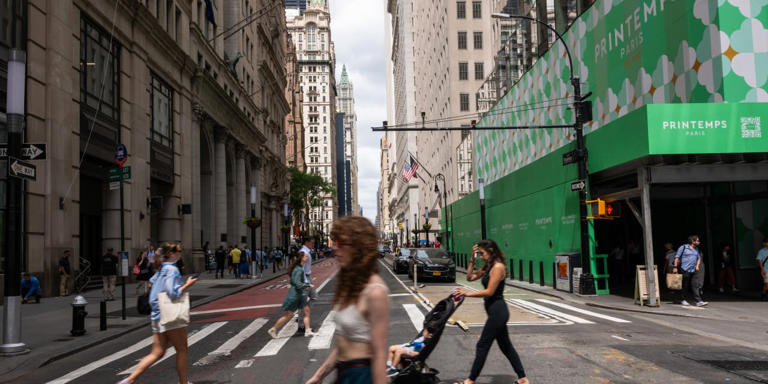
The numbers: Consumer confidence fell slightly in June and reflected the ongoing uncertainty among Americans about the future of the economy.
The consumer-confidence index slipped to 100.4 this month from a revised 101.3 in May, the Conference Board said Tuesday.
Economists polled by the Wall Street Journal had forecast the index to register 100 in June.
Consumer confidence tends to signal whether the economy is getting better or worse.
Confidence has been up and down for the past few years as Americans confronted higher interest rates and lingering inflation. Yet a strong labor market and record stock gains have helped to cushion some of the blow.
The consumer confidence index topped 132 shortly before the pandemic began in early 2020. It rebounded to as high as 129 in 2021 before tailing off to current levels.
Key details: A measure that looks at how consumers feel about the economy right now edged up to a three-month high of 141.5.
Booming stocks and strong jobs market helped to ease some of the anxiety about the economy, but Americans are still bothered by high grocery prices.
A confidence gauge that looks ahead six months, on the other hand, slipped to 73.0 from 74.9 and touched a 13-month low.
The so-called expectations index has been below the key 80 level that typically signals recession for five months in a row.
The U.S. has easily avoided a recession, however, even though the index has dipped below that mark repeatedly since 2022.
Americans said they were less likely to buy a home or new car because of high interest rates, but a greater percentage also said they are planning to travel for vacation.
Big picture: The economy is still growing and a recession looks far away.
The big question is whether inflation will slow enough to allow the Federal Reserve to cut interest rates, give the economy more adrenalin — and ease the angst of consumers.
The answer still appears a few months away.
Looking ahead: “The mild decrease in confidence isn’t consequential and we think there are sufficient tailwinds to keep consumers spending,” said Oren Klatchkin, financial market economist at Nationwide.
Market reaction: The Dow Jones Industrial Average DJIA, +0.04% fell, but the S&P 500 SPX, +0.16% rose slightly, in Tuesday trades.


